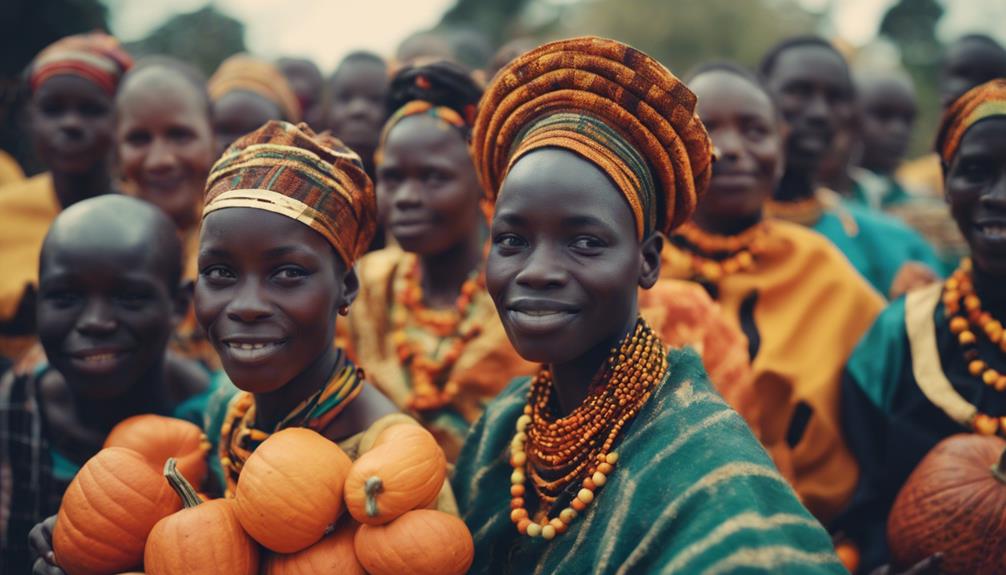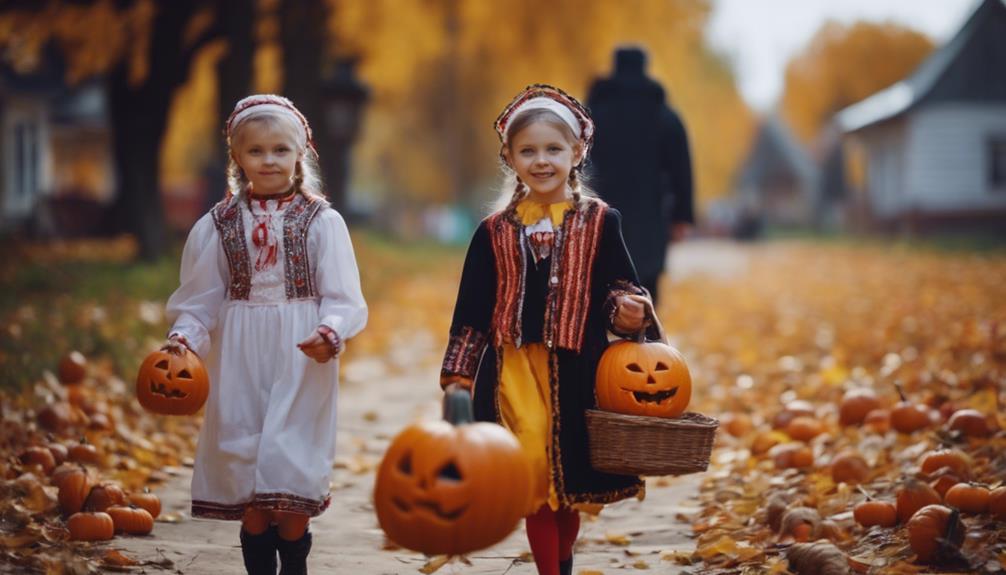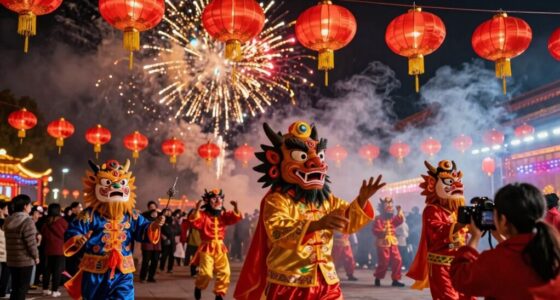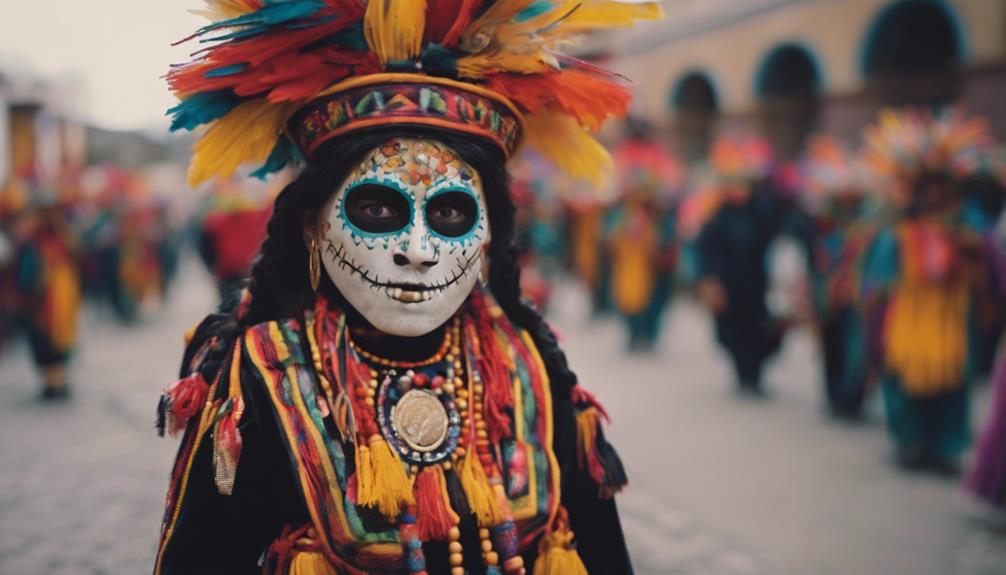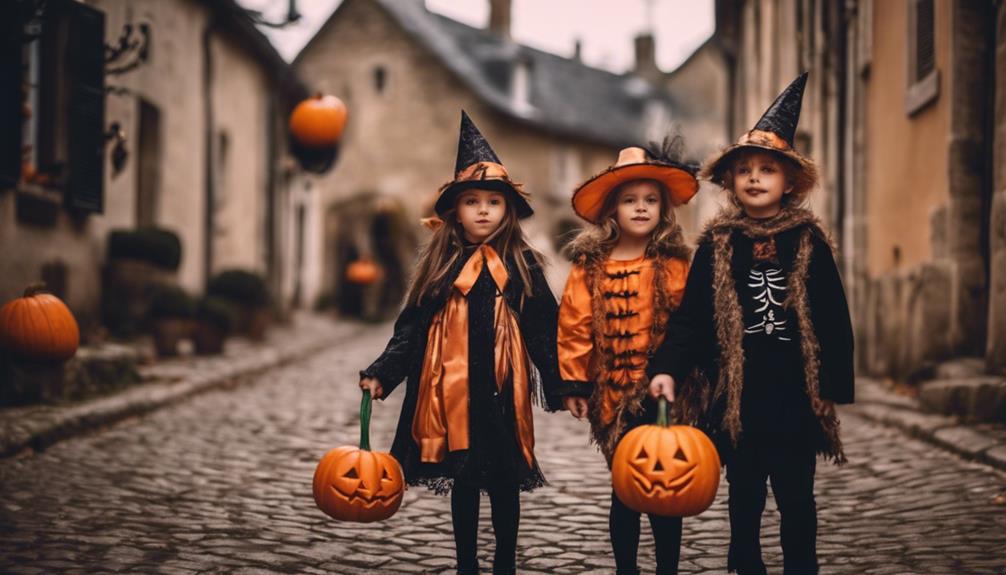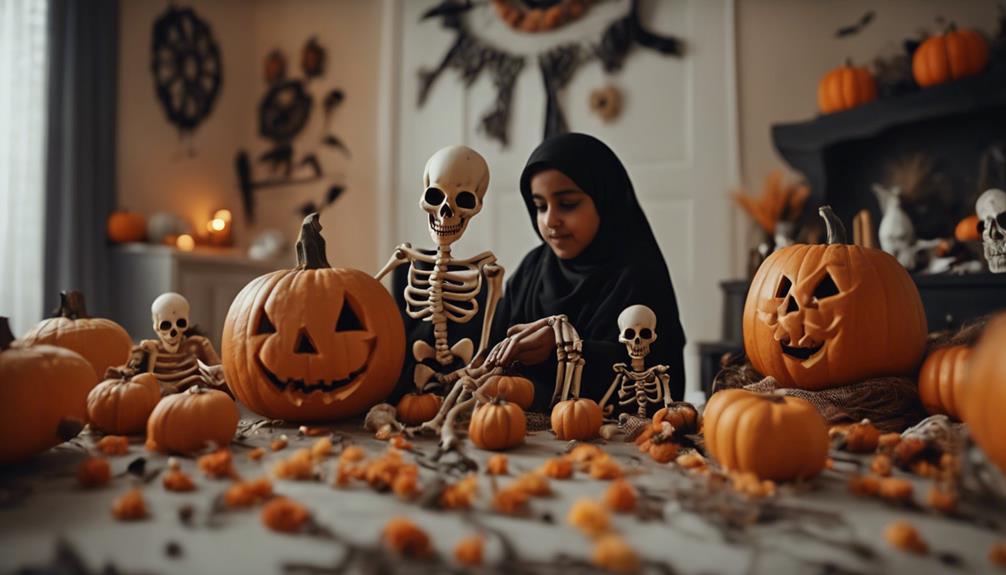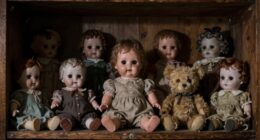Ugandans showcase diverse perspectives on Halloween traditions, influenced by cultural diversity, exposure to the West, religion, and socio-economics. Attitudes towards Halloween vary within the country, reflecting a complex interplay of factors. Challenges like associations with the occult and unfamiliarity hinder widespread acceptance. Understand the distinctions between cultural appropriation and enrichment is essential in integrating Halloween. Younger generations are driving interest, with events and themed products gaining popularity. The future hints at increased acceptance and celebration of Halloween in Uganda, reflecting a potential shift in cultural practices.
Key Takeaways
- Ugandans show diverse reactions towards embracing Halloween traditions.
- Cultural diversity, exposure to Western influences, and religious beliefs influence acceptance.
- Challenges include associations with ghosts, unfamiliarity, and conflicting values.
- Understanding cultural appropriation vs. enrichment is crucial for integration.
- The younger generation and globalization may drive Halloween's acceptance in Uganda.
Ugandan Perspectives on Halloween Traditions
Some Ugandans show varied reactions towards embracing Halloween traditions. Christine Mawadri supports celebrating Halloween as a way to introduce more fun days into the cultural calendar. This indicates a level of openness among some Ugandans towards embracing Halloween traditions.
On the other hand, Alex Ndawula views Halloween as a meaningless excuse for partying, reflecting skepticism towards adopting Halloween practices in Ugandan culture. This differing perspective highlights the diversity of opinions within Ugandan society regarding this Western tradition.
Daniel, the Sales Manager, finds Halloween parties intriguing but also scary, showcasing a mixed reaction towards Halloween traditions among Ugandans. It's evident that there's a range of emotions and thoughts surrounding Halloween within the Ugandan population.
While some like Christine are open to the idea, others like Alex are more critical, and individuals like Daniel showcase a blend of curiosity and apprehension towards this festive occasion.
Influential Factors in Embracing Halloween

The acceptance of Halloween traditions in Uganda is influenced by a combination of cultural diversity, exposure to Western influences, religious beliefs, socio-economic factors, education levels, and personal experiences.
Cultural diversity and exposure to Western influences contribute to the varying levels of acceptance of Halloween traditions in Uganda. Religious beliefs and values play a significant role in shaping Ugandans' attitudes towards embracing Halloween practices.
Socio-economic factors, such as urbanization and globalization, impact the adoption of Halloween traditions in different regions of Uganda. Education and awareness about the origins and meanings of Halloween can influence the level of acceptance and participation in related festivities.
Personal preferences and experiences shape individuals' decisions to either embrace or reject Halloween traditions in Uganda. These factors collectively influence the extent to which Ugandans engage in Halloween parties and related celebrations, reflecting a blend of cultural, social, and personal considerations.
Challenges to Adopting Halloween Celebrations
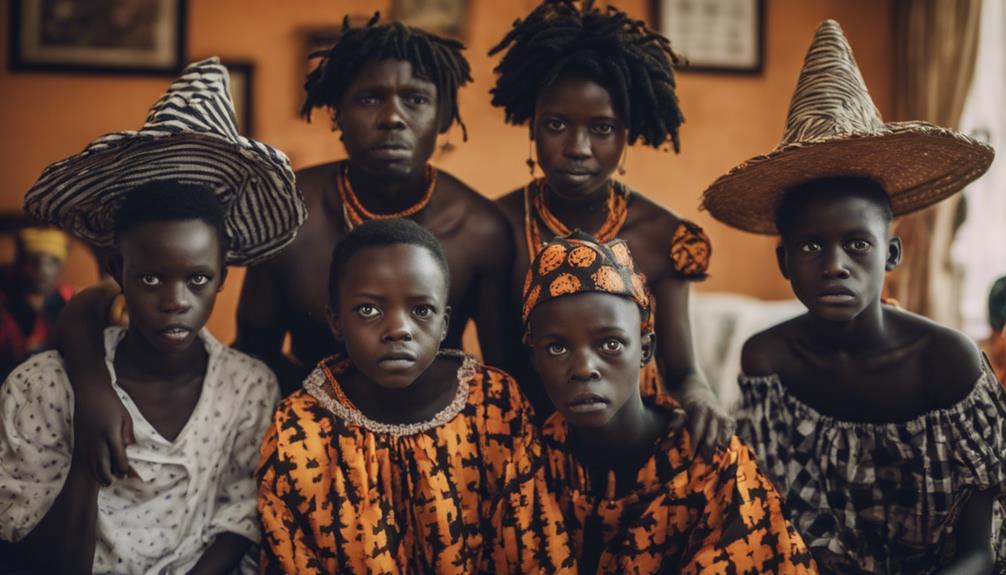
Challenges arise when attempting to incorporate Halloween celebrations in Ugandan society due to the prevalent associations with ghosts, witches, and occult practices, which may clash with local beliefs and values. The unfamiliarity with Halloween traditions and their perceived negative influences hinder its acceptance in Uganda.
Concerns about promoting fear and dark themes in Ugandan society pose challenges to adopting Halloween. Religious beliefs and cultural values may conflict with the idea of celebrating Halloween in Ugandan communities, leading to resistance. This resistance stems from a desire to preserve local traditions and values that are seen as incompatible with Halloween festivities.
For instance, a Sales Manager in Uganda might find it challenging to promote Halloween-related products or events due to these deep-rooted cultural beliefs. Overcoming these obstacles requires a delicate balance between introducing new traditions and respecting existing cultural norms.
Cultural Appropriation Vs. Cultural Enrichment
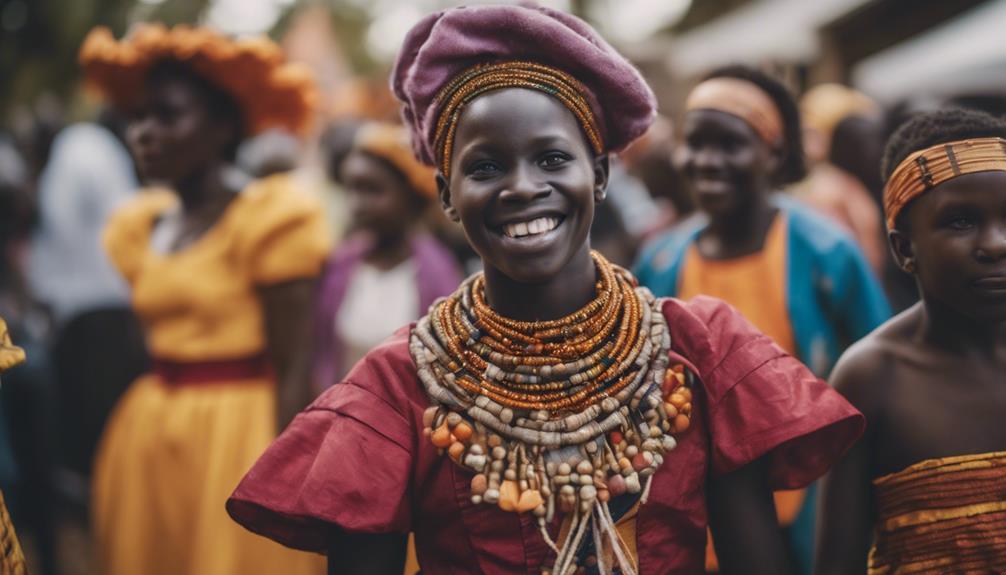
Considering the integration of Halloween traditions into Ugandan culture requires a nuanced understanding of cultural appropriation versus cultural enrichment. When Ugandans celebrate Halloween, it is vital to navigate the fine line between appreciating diverse traditions and inadvertently disrespecting or misrepresenting them. Below is a table illustrating the key differences between cultural appropriation and cultural enrichment:
| Cultural Appropriation | Cultural Enrichment |
|---|---|
| Involves adopting elements without understanding or respect | Involves respectfully engaging with different cultures |
| Can lead to misinterpretation or disrespect | Promotes mutual understanding and broadens perspectives |
| Often results from a power dynamic favoring the dominant culture | Focuses on equality and mutual learning |
| May harm the source culture | Can lead to cross-cultural collaboration and appreciation |
| Ignores the historical and cultural significance of traditions | Embraces the depth and richness of diverse cultural practices |
Understanding these distinctions is crucial as Ugandans explore the incorporation of Halloween traditions into their cultural tapestry.
Future Outlook for Halloween in Uganda
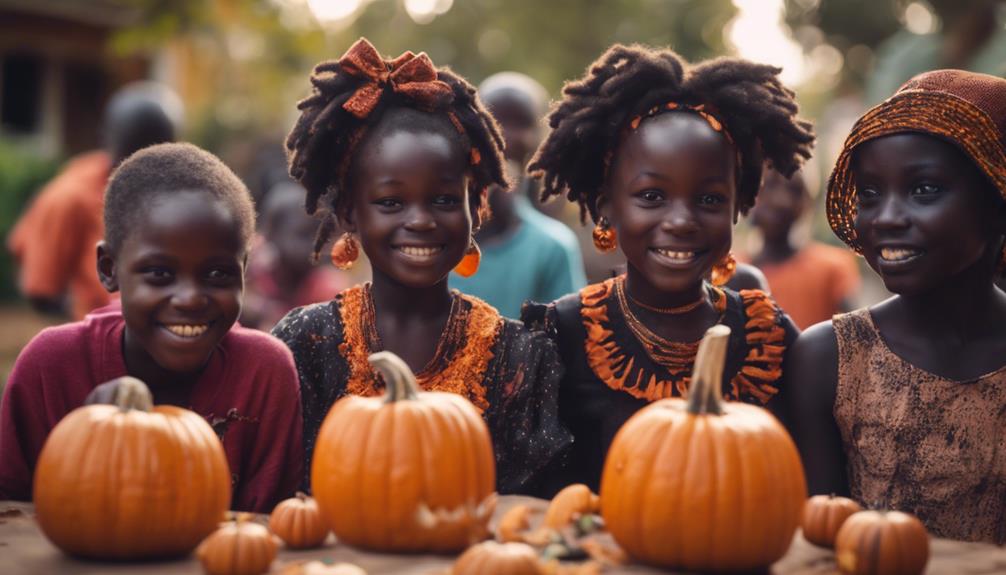
Understanding the integration of Halloween traditions into Ugandan culture requires a keen awareness of the potential evolution and impact of these festivities in the future. With some Ugandans already envisioning Halloween as a popular and enjoyable celebration waiting to come back, it's evident that the younger generation may play a significant role in driving the adoption of Halloween traditions and practices in the country.
As Halloween events and parties continue to gain traction, there's a likelihood that their popularity and frequency will increase over time. Additionally, businesses in Uganda might capitalize on this trend by offering themed products and services to cater to the growing interest in Halloween.
The gradual acceptance and integration of Halloween into Ugandan society may also be propelled by cultural exchange and globalization, paving the way for a potential future where Halloween becomes a more prominent and widely celebrated occasion in the country.
Frequently Asked Questions
Do African Countries Celebrate Halloween?
African countries, including Uganda, generally don't widely celebrate Halloween. This holiday is more prevalent in Western nations and isn't deeply rooted in African cultures.
Traditional festivals and celebrations unique to African societies often take precedence over Halloween, which is viewed as a foreign concept. The commercialization of Halloween may not align with the cultural values and practices of many African communities, contributing to its limited observance across the continent.
What Country Did Halloween Originate From?
Halloween originated from the ancient Celtic festival of Samhain in Ireland. The Celts believed that on the night of Samhain, the boundary between the living and the dead was blurred. This marked the end of summer and the beginning of winter, allowing spirits to cross over into the mortal world.
Samhain traditions like wearing costumes and lighting bonfires evolved into modern Halloween practices. Irish immigrants brought these traditions to the United States, where Halloween became commercialized and widely celebrated.
Is Halloween a Cultural Tradition?
Halloween, though not a traditional cultural celebration in Uganda, is viewed by many as a foreign concept. The debate among Ugandans on whether to integrate Halloween into their practices continues. Some see it as a chance for fun, while others are hesitant due to its dark themes.
Embracing Halloween as a cultural tradition in Uganda remains a topic of discussion, with varied perspectives shaping the narrative.
Do They Have Halloween in Kenya?
In Kenya, Halloween isn't a widely celebrated holiday. It isn't deeply rooted in Kenyan culture, and traditional holidays and festivals specific to the country's heritage are more commonly observed.
While some urban areas may host Halloween parties for expatriates or those familiar with the holiday, it isn't a mainstream or widely recognized tradition. Kenyans typically prioritize their own cultural celebrations over Halloween festivities.
Conclusion
To sum up, it appears that Ugandans are still in the process of embracing Halloween traditions, with various factors influencing their adoption.
While some challenges exist, such as cultural appropriation concerns, there's potential for Halloween to become more integrated into Ugandan culture in the future.
As the country continues to navigate the balance between tradition and modern influences, only time will tell if Halloween will truly take root in Uganda's celebratory landscape.
